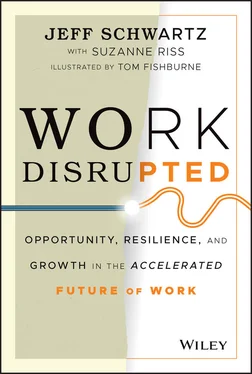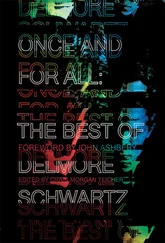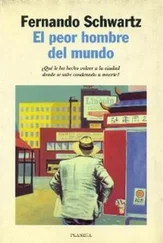The pause, the uncertainty, the need to adapt remind us that our lives are stories of disruption, adaptability, and survival. I was born the year after the first satellite launched from Earth ( Sputnik by the Soviet Union in 1957), watched the first men walking on the moon when I was 11 (the United States in 1969), and witnessed the first commercial space launches to the International Space Station in 2020. My career has extended across stock market crashes, Y2K, 9/11, the Great Recession, and pandemics (H1NI, Ebola, and Covid-19). And, yes, technology. I wrote my college papers on electric typewriters, before welcoming tablets with the processing power of supercomputers. I've worked as a researcher, teacher, banker, government agency program director, consultant, writer, and professor. I've lived in the United States, Nepal, Sri Lanka, Kenya, Russia, Belgium, India, and Israel. I realize that I've been learning lessons in adaptability throughout my career. I've shifted my expectations and adjusted to what was occurring, not what I'd imagined would come next.
My daughters received similar lessons in adaptability when Covid-19 upended their routines. My daughter Rachel, 28, a graduate MBA student at Emory University in Atlanta, shifted to virtual learning for the second half of the semester, along with 1.6 billion other college students around the world, and then she took a virtual summer internship. My younger daughter, Bizzie, 25, was three weeks into training as a U.S. Peace Corps volunteer in Madagascar, when she, along with 7,000 volunteers and trainees around the world, evacuated back to the United States. This was the first time since its founding in 1961 that the entire U.S. Peace Corps returned home. I watched my daughters accept the shifts and grow more resilient.
Our Long and Winding Careers
I learned lessons in adaptability early in my career. In fact, the start of many of my jobs coincided with major world events. After graduate school, I was in the middle of onboarding training for a position as a corporate finance associate at Chemical's Investment Bank, now part of JPMorgan Chase, in October 1987, when the stock market experienced its largest one-day percentage drop since the Great Depression. A few years later, after the fall of the Berlin Wall in 1989, I took a leave from my “business” life to become one of the first associate directors of the U.S. Peace Corps as it launched in Russia, following the dissolution of the former Soviet Union. I joined Deloitte on September 1, 2001, just days before the 9/11 attacks. Seven years later, we lived through the Great Recession and the global financial crisis.
The challenges were offset by career high points. These include leading the consulting practices for Deloitte in India, both global delivery teams and professionals working with some of India's largest companies. I worked for Reliance Industries from 2011 to 2016, as the company launched Jio (which means “live life” in Hindi), now the largest 4G and mobile company in India. The company introduced its customer operations in September 2016, and by the summer of 2020 had almost 400 million customers, becoming India's largest telecom company with a focus on mobile 4G connectivity. During this time, India was a country in transition—both in its domestic economy and its relationship with the global economy. I was able to contribute in a small way to the creation of the world's second largest 4G telecom company and the rapid introduction to India of smart mobile and app services.
I didn't study the future of work or adaptability in school—nobody does. In retrospect, I see that I've been remarkably prepared to help business leaders understand the future world of work in part because of what I learned as an undergraduate and graduate student studying history, philosophy, and government, and then business and economics, and, perhaps most of all, as a result of experiences exposing and preparing me for the breadth of what has been unfolding during our lifetimes. In 1983 I was completing my service as a Peace Corps teacher in Nepal, one of the world's most beautiful and poorest countries, where I taught math and science in a village with no running water or electricity, a village that was a day's walk to a road. Two years later, in the summer of 1985, I was a summer associate in corporate finance on Park Avenue in New York. Somewhere between Nepal and New York City, I'd been lucky to have been exposed to vastly different faces of the human experience.
What I continue to learn, and what I hope my daughters are learning, is that how we frame the world, what we think is relevant and possible, shapes what we can do and what we actually do. New times and new conditions create new opportunities. Unless we reshape our views—our time horizons, relationships, speed—we will miss opportunities. For us as individuals, and as organizations and communities, Covid-19 has indeed been an accelerator to the future. But the future was already underway, with opportunities for people and machines to work together, and careers composed of chapters of reinvention. To embrace all that's possible, a new mindset—a growth mindset—is critical.
The concept of a growth mindset, developed by psychologist Carol Dweck, speaks to our capacity for change and growth. She contrasts a growth mindset with a limiting view, what she calls a fixed mindset. Her research demonstrates that much of what we think we understand about ourselves and what we can do comes from our mindset. This can either propel us forward or prevent us from fulfilling our potential. According to Dweck, whether or not we're aware of our mental models, they can have a profound effect on our skill acquisition, personal relationships, professional success, and many other dimensions of life. People with a growth mindset believe that their most fundamental abilities can be developed through dedication and hard work. This view builds a love of learning and a resilience that will serve us well in the future world of work. People with fixed mindsets believe they're good or bad at something based on their inherent nature, closing out the possibility that they can acquire new skills and capabilities. Similarly, editor and anthropologist Gillian Tett teaches us that the way we label and categorize the world indeed influences what we think we can do.
As Covid-19 proves to be a storm hovering for longer than many of us expected, I remind myself that it has been during times of disruption and stress that we've seen some of the biggest changes in our economy and society. We're living through a period of pivoting and acceleration. Covid-19 has dramatically challenged us to think about the future that we want to create. Reflecting upon the future of work over the last half dozen years, I've been particularly mindful of the fact that, all too often, we've viewed the future of work as a way to produce the same work, using the same work processes, with little bits of new technology thrown in. However, the real opportunities lie not in doing the same things that we're doing today, only a little bit better and a little bit faster. The real opportunities lie in the exploration and journey that allow us to discover how we can do things differently. How can we produce different results with more impact and more meaning? How can we create new combinations of human–machine teams reinforcing the unique capabilities of each? How can we create more flexible ways of working for ourselves and members of the workforce? How can we create workplaces that combine our ability to work virtually and in person? And, finally, how we can create a future of work that not only creates economic value but reflects our social and communal values as well? This book is an attempt to explore these possibilities and advance this dialog.
Читать дальше












